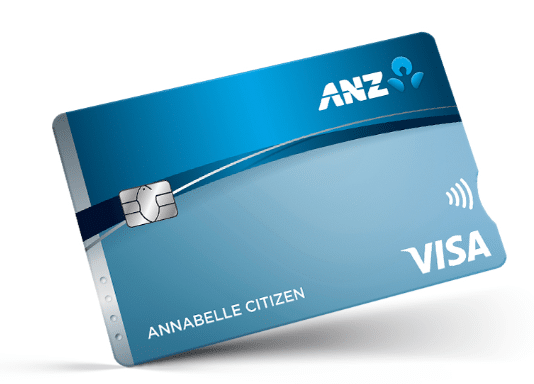In today’s fast-paced world, mastering your finances is more crucial than ever for Australians. With rising costs and a changing economic landscape, it’s vital to take control. This article offers valuable financial advice to help you manage your money better.
It covers understanding your income and expenses, choosing the right budgeting methods, and exploring investment strategies. You’ll learn how to create an emergency fund and avoid common financial pitfalls. These tips aim to help you achieve financial stability and growth in the long run.
Anúncios
Understanding Your Income and Expenses

ANZ Low Rate Credit Card
Knowing your income and expenses is key to managing your money well. Tracking your income helps you see where your money comes from. This includes your salary, bonuses, and any extra work you do.
By knowing how much you earn each month, you can understand your financial health better.
Tracking Your Monthly Earnings
To manage your money well, start by tracking your income. Making a list of your monthly earnings can show you your financial situation. This includes:
- Salary and wages
- Bonuses and commissions
- Income from rental properties
- Side hustles or freelance work
Identifying Fixed and Variable Expenses
It’s also important to understand your monthly expenses. Expenses can be fixed or variable. Fixed expenses stay the same every month, making them easier to budget for. Examples include:
- Rent or mortgage payments
- Utilities
- Insurance premiums
Variable expenses change and include things like:
- Groceries
- Entertainment
- Dining out
Keeping an eye on these expenses can help you save money. This improves your budgeting.

Choosing the Right Budgeting Method
Choosing a budgeting method that suits your financial goals is key to managing money well. Each method has its own benefits. It’s important to find one that matches your lifestyle and spending habits.
Exploring the 50/30/20 Rule
The 50/30/20 rule is a popular budgeting strategy. It suggests allocating 50% of your income to essential costs like rent and bills. Then, 30% for discretionary spending, like eating out and fun activities. Finally, 20% for savings and investments. This rule helps keep your finances balanced.
Zero-Based Budgeting Explained
Zero-based budgeting is different. It assigns every dollar to a specific use. You need to use all your income for expenses and savings until there’s nothing left. This method ensures you spend wisely and focus on what’s important.
The Envelope System for Spending Control
The envelope system is a hands-on way to budget. It involves using cash for different spending areas. For example, you might have an envelope for groceries or entertainment. When the cash runs out, you stop spending in that area until next time. It helps control spending and avoid impulse buys.
Creating a Rainy-Day Fund
A rainy-day fund is a key part of your financial safety net. It helps during unexpected times like medical emergencies or job loss. Having this fund lets you handle your money with more confidence.
Experts say you should save enough to cover three to six months of living costs. This way, you’re ready for any financial challenge.
How Much Should You Save?
The right amount for your rainy-day savings depends on your situation. This includes your monthly bills and how steady your income is. Here’s how to start:
- First, figure out your monthly must-haves like rent, utilities, food, and insurance.
- Then, multiply this by three to six to find out how much you should save.
- Think about how secure your job is and your financial needs when deciding on the amount.
Best Places to Keep Your Emergency Fund
It’s important to pick the right account for your emergency fund. A high-interest savings account is a good choice. It lets your money grow while still being easy to get to.
These accounts usually have better interest rates than regular savings accounts. Look for ones with no monthly fees and easy access. This way, you can use your emergency fund when you need it, without any extra costs.
Determining Your Risk Profile
Knowing your risk profile is key for good investment planning. Many things affect how much risk you can handle, like your age, financial goals, and how long you plan to invest. Each of these factors is important in deciding how much risk you can take on.
Factors Influencing Your Risk Tolerance
Several elements help figure out your risk tolerance. These include:
- Age: Younger people usually take more risks because they have more time to recover from market ups and downs. This lets them invest more in shares for growth.
- Financial Goals: What you want to achieve financially affects how much risk you’re willing to take. Clear goals for the future might mean you’re more open to risk.
- Investment Horizons: If you’re investing for the short term, you’ll likely want to take less risk. This is because you need to keep your money safe.
Investment Horizons and Financial Goals
How long you plan to invest affects your risk management. Longer investment times mean you can take on more risk. This is because you have more time to recover from market drops.
On the other hand, those nearing retirement tend to play it safer. They want to keep their savings safe while still hoping for some growth. Knowing these things helps match your investments with your financial goals.
Allocating Your Investments
Investment allocation is key to financial success. It involves spreading your money across different types of investments like shares, bonds, and cash. A good plan matches your financial goals and how much risk you’re willing to take.
Importance of Asset Allocation
Asset allocation is vital for managing risk and aiming for the best returns. Different investments react differently to market changes. A balanced mix can protect you from big swings in the market.
By spreading your investments, you boost your chances of reaching your financial goals.
Choosing Between Shares, Bonds, and Cash
Deciding on shares, bonds, and cash depends on your risk level. Shares can offer high returns but are riskier. Bonds are more stable, and cash helps keep your money safe.
Knowing what each investment does helps you create a plan that fits your financial needs.
Automating Your Finances for Consistency
Adding automation to your money management can make things easier and less stressful. It lets your savings and investments grow on their own, without needing you to check on them all the time. This way, you save time and build good financial habits for the future.
Setting Up Automatic Transfers
Automatic transfers help you save and invest a set amount of money easily. It keeps you on track with your financial goals, without the chance to spend it. Using bank services or apps makes it simple to set up regular transfers.
This makes sticking to your budget easier and more natural.
Benefits of Automated Bill Payments
Automating bill payments stops late fees and keeps your money flowing smoothly. It takes away the worry of missing payment due dates. This system protects you from forgetting payments, which could harm your finances.
With automated payments, you can focus on bigger financial goals. It makes you more responsible with money and gives you more time to look into investments.
Reviewing Your Financial Portfolio Regularly
Regularly reviewing your financial portfolio is key to keeping your finances in check. It helps you see how your investments are doing and if they match your goals. You might need to make changes as the market moves, affecting your investments’ value.
Why Consistent Portfolio Checks Matter
Regular portfolio reviews help you check how your investments are doing against your goals. You can spot any investments that aren’t doing well and decide what to do with them. This keeps you aware of risks and chances, making your finances more stable.
Adjusting Investments According to Market Changes
It’s important to adjust your investments when the market changes. This keeps your portfolio’s value safe. By being quick to respond to market shifts, you can make the most of new opportunities and avoid losses. This keeps your financial plan on track for the long term.
Common Financial Mistakes to Avoid
Knowing about common financial mistakes can improve your money handling skills. Fixing these errors early can lead to better financial health. Many people miss out on important areas like managing debt, choosing insurance, and understanding tax policies.
By knowing these key areas, you can make smarter choices.
Ignoring Debt Management Practices
Not managing debt well can make financial problems worse. High-interest debts need a focused approach to pay off quickly. This helps you save and invest more in the future.
Overlooking the Importance of Insurance
Not having enough insurance is risky. Life can throw unexpected challenges, and the right insurance protects you. Regularly check your insurance needs to stay safe from financial shocks.
Neglecting to Stay Informed on Tax Policies
Not keeping up with tax policies can mean missing out on savings. Knowing the latest rules helps you make better financial decisions. It also helps protect your income.
Conclusion
Mastering your finances is a journey that needs a deep understanding of your money. Using budgeting strategies like the 50/30/20 rule helps Australians see their finances clearly. Having a rainy-day fund is key to being ready for surprises.
Investing wisely is also important. Knowing your risk level and spreading investments helps reach financial goals. Keeping an eye on your investments ensures they stay on track with the market.
Staying away from financial traps is crucial for stability. Learning about debt, insurance, and taxes helps secure your financial future. By following these steps, Australians can achieve financial success.
FAQ
What is the importance of understanding my income and expenses?
What budgeting method is recommended for Australians?
How can I create an emergency fund?
How do I determine my risk profile?
Why is asset allocation important?
What are the benefits of automating finances?
Why should I regularly review my financial portfolio?
What common financial mistakes should I avoid?
Conteúdo criado com auxílio de Inteligência Artificial



